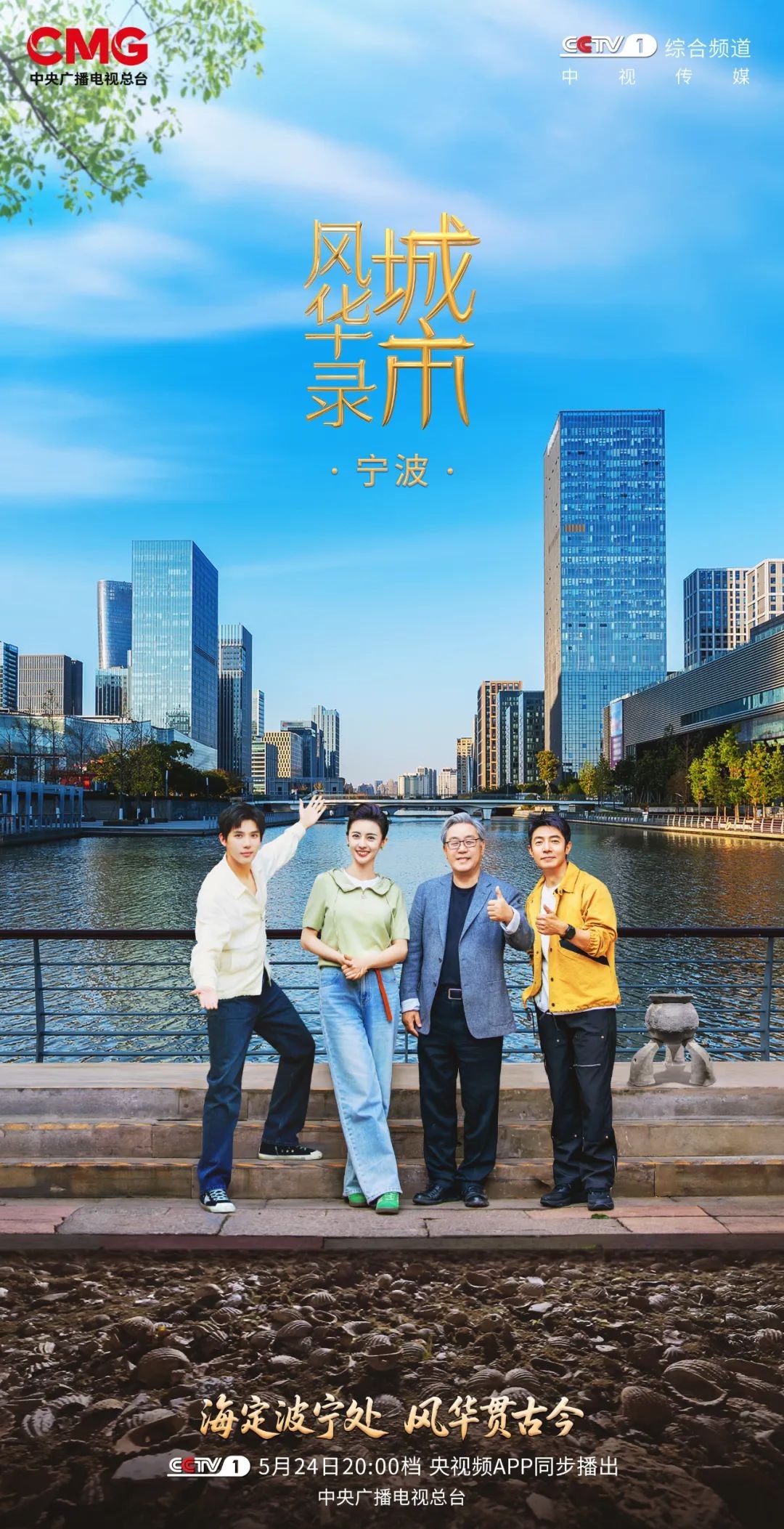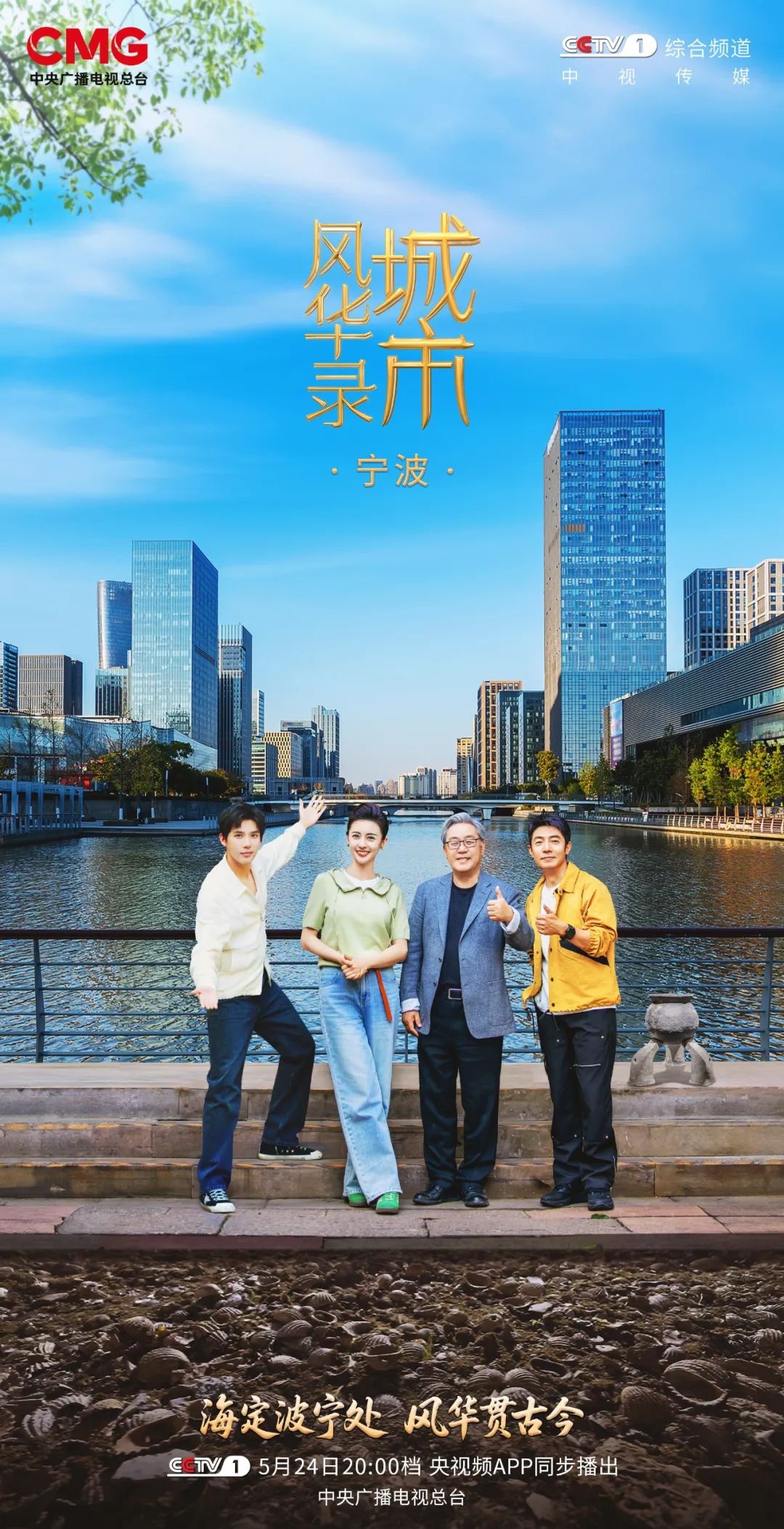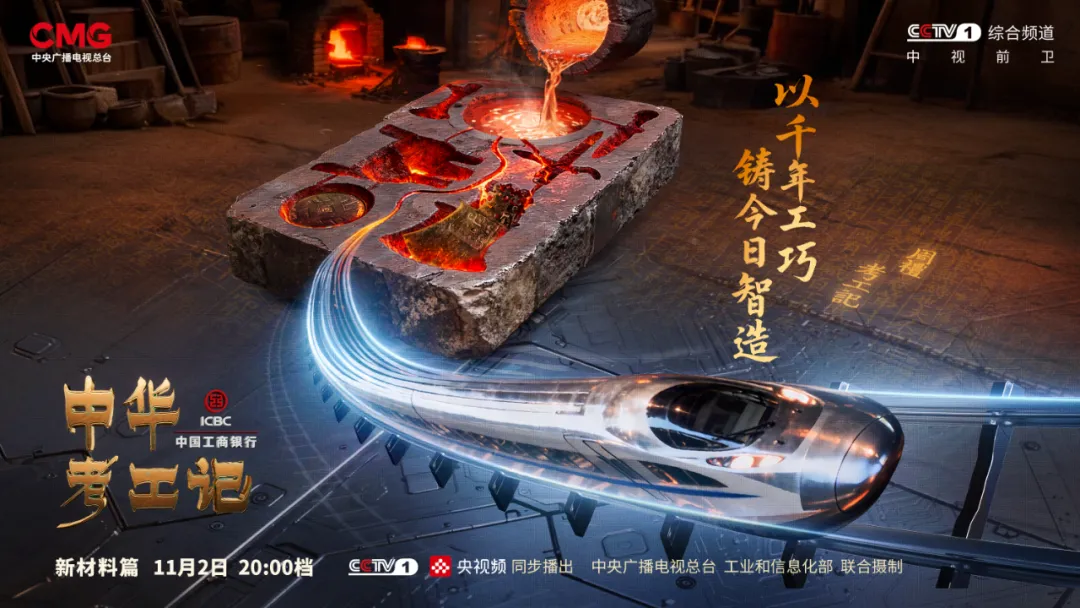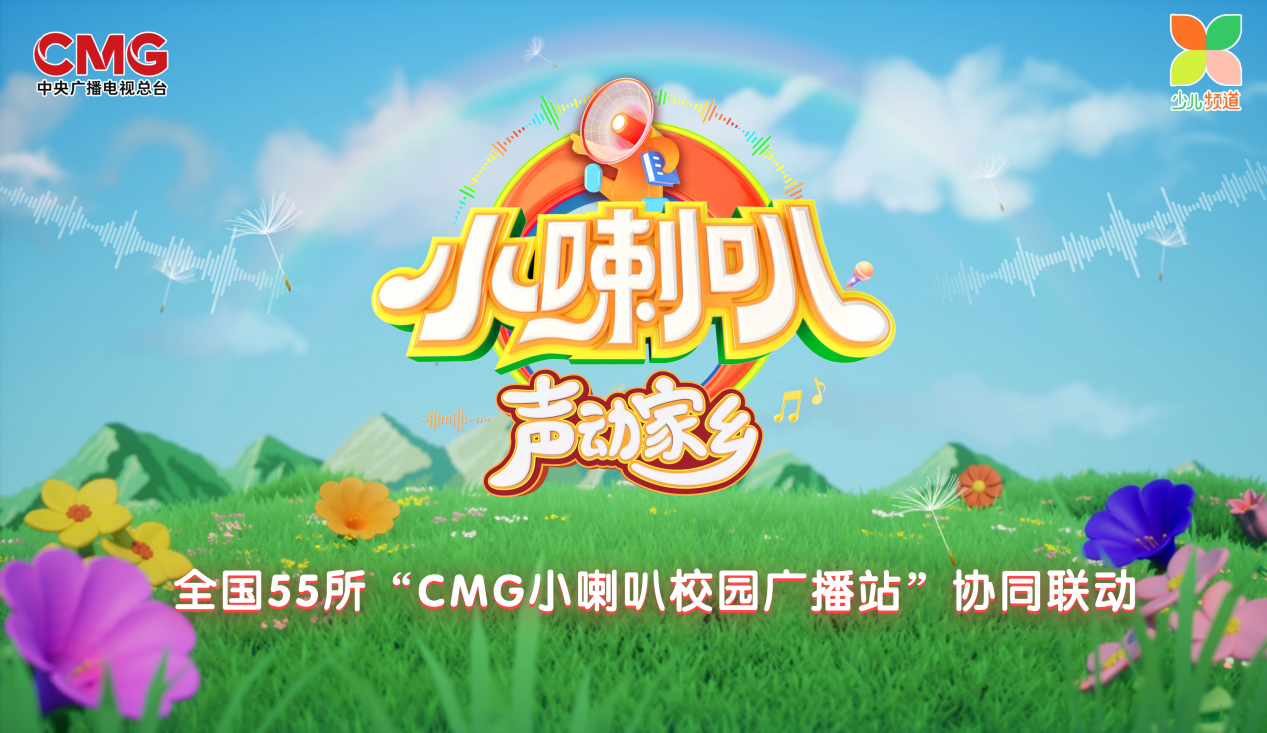
During the 8,000 years of ebb and flow of the tide, Ningbo people have nurtured survival wisdom in symbiosis with the sea, and have also turned the blue sea into today's modern "blue granary".
At 20:00 on May 24, CCTV-1 will launch the large-scale seasonal program "City Fenghua Records" Ningbo Chapter. Host Sa Beining, together with Wu Zhiqiang, an academician of the Chinese Academy of Engineering, Wang Anyu, an actor from Ningbo, and Zhang Shuyue, a host of the Central Radio and Television Station, will form the "Fenghua Group" to start an exploration of the city spanning 8,000 years. With "Hai Ding Bo Ningbo" as the context, the program will unlock the new look of Ningbo with a multi-dimensional perspective and immersive experience.

Program poster
“The most beautiful way to school”
Ningbo is a civilized city where people can sit on the ground. This "cleanliness" comes from the joint construction and sharing of all citizens; this civilization is the most valuable city brand.
The beauty of Ningbo's civilization is hidden in every detail. The "Fenghua Group" split into two groups: Sa Beining and Wu Zhiqiang visited Ningbo's original "Most Beautiful Way to School". The colorful trails, wind and rain corridors, and children's graffiti have transformed the school gate from a "congested battlefield" to a "dopamine paradise". Different colors also have different functions, allowing children and parents to use them according to the corresponding areas to solve the chaos and congestion during the peak hours of school traffic. At present, Ningbo has built more than 160 "Most Beautiful Ways to School". Children actively participate in the design and co-creation. No road is exactly the same.
Wang Anyu and Zhang Shuyue transformed into "garbage classification experts", checked in at the fashionable garbage classification fun garden party, listened to the youth stories in Ningbo University's "Qinghe Project", experienced basketball classification and waste recycling at the "Green Market", and made lilies with fruit foam net bags with a 70-year-old "green housewife". There are also multifunctional full-category smart recycling bins that can automatically weigh different types of household garbage and exchange them into resource coins, which are then converted into cash and deposited into residents' accounts. Today, Ningbo continues to stimulate the enthusiasm of the whole people to participate by creating the "Garbage Classification Volunteer College" and "Ala Classification" volunteer service brands, while deeply integrating digital technology and innovative means to effectively improve the efficiency of resource recycling.
Ningbo is a place where you can touch anything, sit comfortably, and keep your clothes clean. "Ningbo is so clean that you can sit on the floor." Zhang Shuyue's praise reveals the secret of Ningbo being one of the first cities selected as a national civilized city - all people build and share together. All-category smart recycling bins use points to encourage environmental protection. The dual empowerment of technology and humanity makes the "zero-waste city" a vision into reality. As Wu Zhiqiang said, "The future of the city lies in making every inch of space serve people."
The "blue gene" from 8,000 years ago
Ningbo has a social atmosphere of respecting literature and education since ancient times. In ancient times, Ningbo was a famous hometown of Jinshi, which gave birth to Wang Yangming, Huang Zongxi and other literary and historical masters; today, Ningbo is also the hometown of academicians, and is the city with the largest number of academicians of the two academies of China.
How many "firsts" does the treasure Ningbo have? Ningbo has the world's largest port in terms of cargo throughput - Ningbo Zhoushan Port, China's first girls' high school - Ningbo Yongjiang Girls' High School, and China's first city with more than 100 "manufacturing single champion enterprises"... Standing on the Sanjiangkou Bund, you can feel the sea breeze of Ningbo that has spanned thousands of years. The sea has nurtured the prosperity and splendor of this city, and the name "Ningbo" comes from "the sea is calm and the waves are peaceful."
Ningbo's bond with the sea began at the Jingtoushan site 8,000 years ago. The "Fenghua Group" followed the "archaeological leader" - Sun Guoping, director and researcher of the Prehistoric Archaeology Office of the Zhejiang Provincial Institute of Cultural Relics and Archaeology, and stepped into this "prehistoric seafood market" to interpret the survival wisdom of Ningbo's ancestors of "living by the sea" in the mountains of shells, finely crafted wooden paddles and pottery cauldrons. These shells are precisely proof that the Ningbo area is one of the important birthplaces of China's marine civilization. Sa Beining held a clam shell and exclaimed: "This is the earliest 'Ningbo taste'!" And when Wang Anyu was "digging for treasure" at the archaeological site, Zhang Shuyue exclaimed: "It turns out that our seafood freedom is inherited from our ancestors!"
Living by the sea for 8,000 years has woven the daily life of Ningbo people. Checking in the Ningbo Foodie Route Map, the guests came to the Ningbo Aquatic Products Wholesale Market, where there was a wide variety of aquatic products such as hairtail, yellow croaker, and pomfret. The daily aquatic product trading volume here exceeds 1,000 tons, and the daily traffic volume exceeds 8,000 vehicles. It provides the best quality seafood to the citizens of Ningbo and surrounding areas 24 hours a day. At the scene, a dish of yellow croaker in salted soup that was so fresh that it made the guests praise it endlessly - it turned out that with the launch of the deep-sea intelligent breeding platform "Donghai No. 1", Ningbo yellow croaker has moved into a "single-family villa on the sea", realizing deep-sea fully automatic intelligent breeding, which is behind the intelligent upgrade of Ningbo's marine industry.
The "Book Fragrance Heritage" of Millennium Cultural Context
The sky gave birth to water, and the earth made up six of it. After bidding farewell to the Jingtoushan site, the "Fenghua Group" entered the Tianyi Pavilion, the oldest library in Asia, which has protected the classics for more than 400 years with the wisdom of "the sky gave birth to water".
How to open up Ningbo, a city that values literature and education? Here, Sa Beining and the children challenged the "Entrance Examination", Wang Anyu recited "Lanting Collection Preface", and Zhang Shuyue marveled at the thousand-year-old piano sound of the unique piano score "Zheyin Shizi". An "I accompany my children to read classics" activity gave ancient books a new life - children used paper-cuts to restore the library and create ancient piano music, showing the cultural heritage of the "hometown of academic masters". Ningbo people have engraved "farming and reading to pass on the family" into their genes.
This special performance "played" the history of Ningbo. The beautiful music played by the musicians' fingertips was adapted from the music score in the Ming Dynasty's only copy of the music score "Zheyin Shizi". The preservation of these ancient books is inseparable from the "relay inheritance" of Ningbo people - the Tianyi Pavilion ancient book restoration skills have been passed down orally since the Ming Dynasty, and now a complete inheritance system has been formed.
The sea has been calm and peaceful for 8,000 years, and books from ancient times to the present are stored in a pavilion. Every cultural leap of this city is derived from the adherence to and revitalization of its historical roots.


